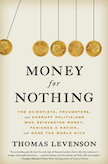
Author – By: Jeremy M. Campbell, K. Sivaramakrishnan (Editor)
Winner of the 2017 James M. Blaut Award from the Cultural and Political Ecology Specialty Group of the Association of American GeographersHonorable Mention for the 2016 Book Prize from the Association for Political and Legal Anthropology
Since the 1960s, when Brazil first encouraged large-scale Amazonian colonization, violence and confusion have often accompanied national policies concerning land reform, corporate colonization, indigenous land rights, environmental protection, and private homesteading. Conjuring Property shows how, in a region that many perceive to be stateless, colonists – from highly capitalized ranchers to landless workers – adopt anticipatory stances while they await future governance intervention regarding land tenure. For Amazonian colonists, property is a dynamic category that becomes salient in the making: it is conjured through papers, appeals to state officials, and the manipulation of landscapes and memories of occupation. This timely study will be of interest to development studies scholars and practitioners, conservation ecologists, geographers, and anthropologists.
Industry Reviews
Conjuring Property provides a rare insight into the social structure, class divisions and psychology of colonist communities. The awareness and empathy that can be taken from Campbell’s findings are his most significant contribution, and will prove valuable to anyone seeking a greater understanding of the Amazon’s complex, and often oversimplified, society.
— Catherine Morgans * Latin American Bureau’s Latin America Inside Out (LAIO) Blog *Campbell’s excellent research and writing takes on extra significance in producing a full and nuanced ethnography of a colonist settlement in the central Brazilian Amazon. . . . An effective and dynamic portrait of this ‘frontier’ region.
— Evan Killick * Journal of Anthropological Research *A real novelty for studies on the Amazon. It helps rethink the region’s identity and history by showing the agency of small and mid-range settlers with unprecedented precision and evidence. . . . A particularly important book for historians.
— Antoine Acker * H-LatAm *Campbell explores in thrilling detail the way that these territorial policies have intersected with life on the ground to produce both spectacular and scandalous policy failures and the effective transformation of the region. . . . This is an honest and necessary assessment of the potentially catastrophic future that Amazonia faces emerging from this rigorous, important, and rather devastating research into how capitalism and the state are constructed on a daily basis in Amazonia.